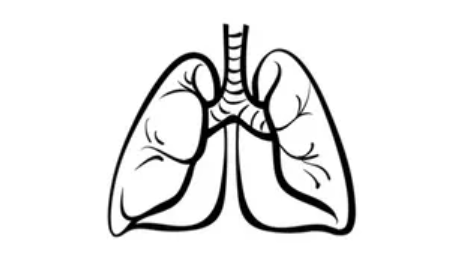Roundtable Roundup: Lung Cancer Biomarkers
In a live virtual event, Yasir Y. Elamin, MD, discussed biomarker testing and management of non–small cell lung cancer (NSCLC) and a related patient case with participating physicians. A 66-year-old man was diagnosed with lung cancer after complaining to his primary care physician about visual disturbances, fatigue, and headaches. The patient's blood pressure level was at 148/70 mm Hg and decreased breath sounds in the lower left lobe, but otherwise showed an otherwise negative result for disease. A brain MRI scan revealed a 10-mm right parietal mass at the gray-white junction without significant vasogenic edema. Osimertinib (Tagrisso) was recommended by the National Comprehensive Cancer Network (NCCN) for first-line therapy in patients with EGFR-mutated advanced NSCLC. The event covered important topics in the field, including the importance of keeping test rates down for community practices, access, awareness of current guidelines, cost, turnaround time, and quality or quantity of tissue. The results from the FLAURA trial also showed survival improvements, leading to OsimERTinib’s position as a preferred regimen.

Published : 2 years ago by Targeted Oncology Staff; in Health
A 66-year-old man presented to his primary care physician complaining of visual disturbances, fatigue, and sporadic headaches. He had a medical history of hypertension managed with candesartan and hyperlipidemia managed with simvastatin in addition to a smoking history of 25 pack-years. A physical examination showed blood pressure level at 148/70 mm Hg and decreased breath sounds in the lower left lobe, but it showed an otherwise negative result for disease. Complete blood count and chemistry results were within normal limits.
A brain MRI scan demonstrated a 10-mm right parietal mass at the gray-white junction without significant vasogenic edema. A CT scan of the chest, abdomen, and pelvis revealed a 3.4-cm mass in the lower left lobe and several small liver metastases. Ultrasound-guided transthoracic needle biopsy result of the lung lesion showed grade 2 lung acinar adenocarcinoma. Staging was T2aN0M1c, and his ECOG performance status was 1. The patient had 90% PD-L1 expression on tumor cells (22C3 pharmDx test) and was anxious to start treatment.
The patient received stereotactic radiosurgery while awaiting molecular studies. Osimertinib 80 mg once daily was initiated. He experienced a good partial response.
In this Case-Based Roundtable event on advanced metastatic NSCLC, Eamin covered important topics in the field, including the following:
• Barriers to biomarker testing keep test rates down, especially for community practices. Access, awareness of current guidelines, cost, turnaround time, and quality or quantity of tissue are the main barriers for physicians.1,2
• According to the National Comprehensive Cancer Network (NCCN) guidelines, biomarker testing should be obtained before first-line therapy for EGFR, ALK, KRAS, ROS1, BRAF, NTRK1/2/3, MET, RET, and ERBB2 (HER2) genes.3
• Osimertinib (Tagrisso) is the NCCN’s preferred category 1 option for first-line therapy in patients with EGFR-mutated advanced NSCLC.3 Findings from the FLAURA trial (NCT02296125) demonstrated survival improvements, leading to osimertinib’s position as a preferred regimen.4
• After treatment with osimertinib, repeat or liquid biopsy is recommended to identify resistance mutations in the EGFR pathway such as EGFR C797X.5
• Findings from DESTINY-Lung02 (NCT04644237) led to the approval of fam-trastuzumab deruxtecan-nxki (Enhertu) as a treatment option for patients with HER2-mutated disease refractory to standard management.6
a This content was generated in tandem with artificial intelligence.
Hess LM, Krein PM, Haldane D, Han Y, Sireci AN. Biomarker testing for patients with advanced/ metastatic nonsquamous NSCLC in the United States of America, 2015 to 2021. JTO Clin Res Rep. 2022;3(6):100336. doi:10.1016/j.jtocrr.2022.100336
2. Sadik H, Pritchard D, Keeling DM, et al. Impact of clinical practice gaps on the implementation of personalized medicine in advanced non-small-cell lung cancer. JCO Precis Oncol. 2022;6:e2200246. doi:10.1200/PO.22.00246
4. Ramalingam SS, Vansteenkiste J, Planchard D, et al; FLAURA Investigators. Overall survival with osimertinib in untreated, EGFR-mutated advanced NSCLC. N Engl J Med. 2020;382(1):41-50. doi:10.1056/NEJMoa1913662
5. Ramalingam SS, Zhang N, Yu J, et al. Real-world landscape of EGFR C797X mutation as a resistance mechanism to osimertinib in NSCLC. Presented at: International Association for the Study of Lung Cancer 2022 World Conference on Lung Cancer; August 6-9, 2022; Vienna, Austria. Abstract OA03.05.
